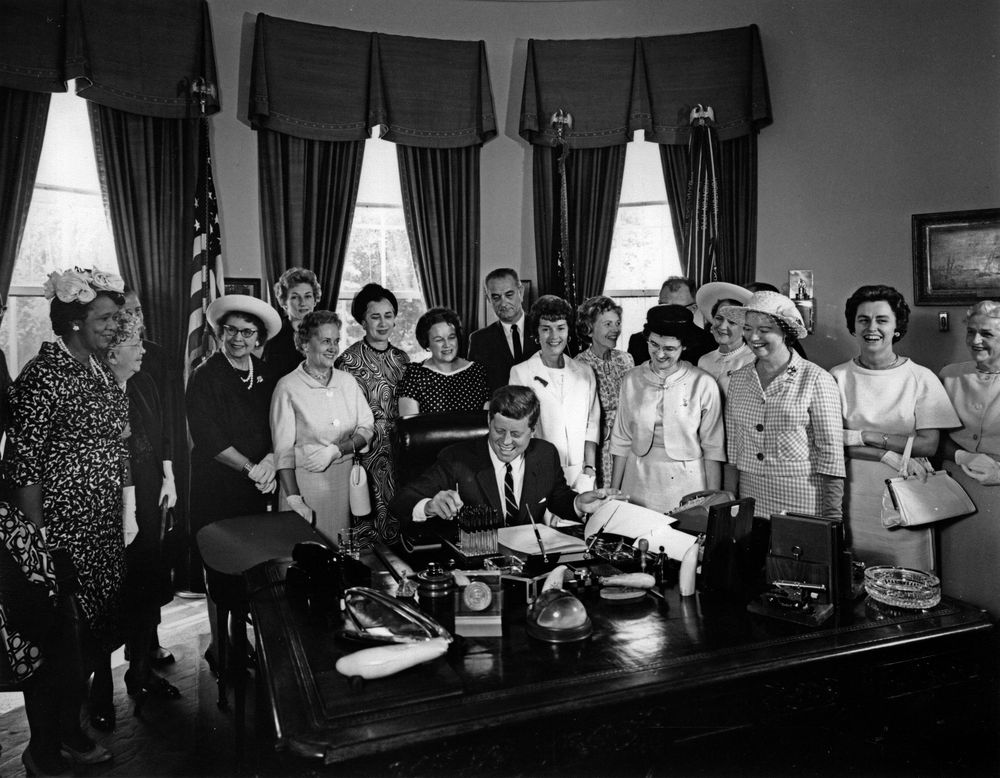|
Womyn-born Womyn
Womyn-born womyn (WBW) is a term developed during second-wave feminism to designate women who were assigned female at birth, were raised as girls, and identify as women (or womyn, a deliberately alternative spelling that challenges the centering of male as norm). The policy is noted for exclusion of trans women. Third-wave feminism and fourth-wave feminism have generally done away with the idea of WBW. Events and organizations that have womyn-born-womyn-only policies bar access to anyone who was assigned male at birth: cis men, trans women, and male children older than a determined age. Second-wave feminism The term "womyn-born womyn" gained usage and popularity during the second wave feminist movement. In 1978, the Lesbian Organization of Toronto adopted a womyn-born womyn-only policy in response to a request for admittance by a transgender woman who identified as lesbian. Womyn-born womyn policies held that the nature of the feminine experience over the course of a lifetime ... [...More Info...] [...Related Items...] OR: [Wikipedia] [Google] [Baidu] |
Second-wave Feminism
Second-wave feminism was a period of feminist activity that began in the early 1960s and lasted roughly two decades. It took place throughout the Western world, and aimed to increase equality for women by building on previous feminist gains. Whereas first-wave feminism focused mainly on suffrage and overturning legal obstacles to gender equality (''e.g.'', voting rights and property rights), second-wave feminism broadened the debate to include a wider range of issues: sexuality, family, domesticity, the workplace, reproductive rights, ''de facto'' inequalities, and official legal inequalities. It was a movement that was focused on critiquing the patriarchal, or male-dominated, institutions and cultural practices throughout society. Second-wave feminism also drew attention to the issues of domestic violence and marital rape, created rape-crisis centers and women's shelters, and brought about changes in custody laws and divorce law. Feminist-owned bookstores, credit unions, and r ... [...More Info...] [...Related Items...] OR: [Wikipedia] [Google] [Baidu] |
Andrea Dworkin
Andrea Rita Dworkin (September 26, 1946 – April 9, 2005) was an American radical feminist writer and activist best known for her analysis of pornography. Her feminist writings, beginning in 1974, span 30 years. They are found in a dozen solo works: nine books of non-fiction, two novels, and a collection of short stories. Another three volumes were co-written or co-edited with US Constitutional law professor and feminist activist, Catharine A. MacKinnon. The central objective of Dworkin's work is analyzing Western society, culture, and politics through the prism of men's sexual violence against women in a patriarchal context. She wrote on a wide range of topics including the lives of Joan of Arc, Margaret Papandreou, and Nicole Brown Simpson; she analyzed the literature of Charlotte Brontë, Jean Rhys, Leo Tolstoy, Kōbō Abe, Tennessee Williams, James Baldwin, and Isaac Bashevis Singer; she brought her own radical feminist perspective to her examination of subjects historicall ... [...More Info...] [...Related Items...] OR: [Wikipedia] [Google] [Baidu] |
Gender Norm
A gender role, also known as a sex role, is a social role encompassing a range of behaviors and attitudes that are generally considered acceptable, appropriate, or desirable for a person based on that person's sex. Gender roles are usually centered on conceptions of masculinity and femininity, although there are exceptions and variations. The specifics regarding these gendered expectations may vary among cultures, while other characteristics may be common throughout a range of cultures. In addition, gender roles (and perceived gender roles) vary based on a person's race or ethnicity. Gender roles influence a wide range of human behavior, often including the clothing a person chooses to wear, the profession a person pursues, the personal relationships a person enters, and how they behave within those relationships. Although gender roles have evolved and expanded, they traditionally keep women in the "private" sphere, and men in the "public" sphere. Various groups, most notably ... [...More Info...] [...Related Items...] OR: [Wikipedia] [Google] [Baidu] |
Performativity
''Performativity'' is the concept that language can function as a form of social action and have the effect of change. The concept has multiple applications in diverse fields such as anthropology, social and cultural geography, economics, gender studies (social construction of gender), law, linguistics, performance studies, history, management studies and philosophy. The concept is first described by philosopher of language John L. Austin when he referred to a specific capacity: the capacity of speech and communication to act or to consummate an action. Austin differentiated this from constative language, which he defined as descriptive language that can be "evaluated as true or false". Common examples of performative language are making promises, betting, performing a wedding ceremony, an umpire calling a strike, or a judge pronouncing a verdict. Influenced by Austin, philosopher and gender theorist Judith Butler argued that gender is socially constructed through commonplace sp ... [...More Info...] [...Related Items...] OR: [Wikipedia] [Google] [Baidu] |
Feminism And The Subversion Of Identity
Feminism is a range of socio-political movements and ideologies that aim to define and establish the political, economic, personal, and social equality of the sexes. Feminism incorporates the position that society prioritizes the male point of view and that women are treated unjustly in these societies. Efforts to change this include fighting against gender stereotypes and improving educational, professional, and interpersonal opportunities and outcomes for women. Feminist movements have campaigned and continue to campaign for women's rights, including the right to vote, run for public office, work, earn equal pay, own property, receive education, enter contracts, have equal rights within marriage, and maternity leave. Feminists have also worked to ensure access to contraception, legal abortions, and social integration and to protect women and girls from rape, sexual harassment, and domestic violence. Changes in female dress standards and acceptable physical activi ... [...More Info...] [...Related Items...] OR: [Wikipedia] [Google] [Baidu] |


